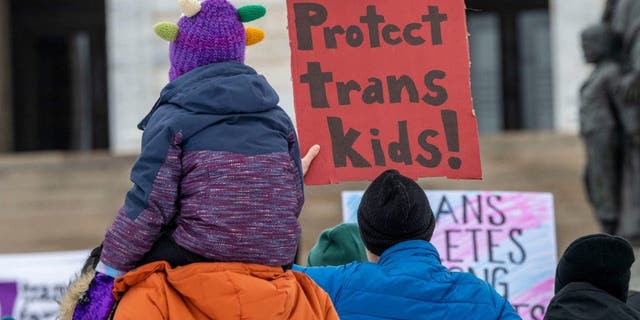Health organizations try to delay depositions explaining policies on gender-transition care for minors
Several health care organizations ordered by a district court to give depositions explaining their guidance on gender-transitioning care filed a new emergency motion to delay the order after their first effort was denied.
Florida’s Agency for Healthcare Administration (AHCA) is being sued by LGBTQ rights groups following an August 2022 rule that banned health care providers in the state from billing Medicaid for gender-transitioning medical treatments or other gender dysphoria treatments for minors.
In response, Florida served third-party subpoenas to the World Professional Association for Transgender Health (WPATH), the American Academy of Pediatrics (AAP) and the Endocrine Society, among more than a dozen other nonprofits, demanding documents detailing the process by which each organization’s policy positions on “gender-affirming care for the treatment of gender dysphoria” were adopted.
The state is also seeking substantive materials and opinions that were considered and relied upon or rejected in adopting those policies.
FLORIDA BILL WOULD RESTRICT GENDER PRONOUNS IN SCHOOLS, DEFINE BIOLOGICAL SEX AS AN ‘IMMUTABLE’ TRAIT
The state of Florida won its hearing Feb. 27, and United States District Judge Carl Nichols filed an order compelling the groups to turn over the information. He also ordered the WPATH, the AAP and the Endocrine Society to additionally submit depositions by a single corporate representative of their choosing, detailing how their guidelines on “gender-affirming care for the treatment of gender dysphoria” were established.
The three groups ordered to give depositions responded by filing an emergency motion to stay March 2, which was denied by Judge Nichols.
Nichols concluded that the nonparty groups’ First Amendment interests were “outweighed by the State’s substantial need for the requested discovery, especially given the State’s agreement to a protective order and to the redaction of names and other personal identifiers in any documents that are produced or testimony that is obtained.”

The groups’ second emergency motion to stay pending appeal was filed Monday with the deadline to produce the documents and depositions coming this Friday, the same day discovery closes in the underlying litigation, Dekker v. Weida, the motion said.
“Production of this information evidencing each organization’s internal deliberative process would squarely infringe Appellants’ First Amendment rights,” the motion filed Monday stated.

The motion said that “while the State claims it is interested in probing the purported consensus of the ‘medical establishment’ in favor of gender-affirming care, this discovery is not about a consensus among the ‘establishment.’”
“On its face, it is an attempt by the State to litigate and attack the internal deliberative process of individual groups that have developed and advocated for a public policy the State disdains,” it said. “This discovery tramples on firmly-established Constitutional principles and, if permitted to go forward, would have immediate and irreparable harmful effects on each group and the public at large.”
Read the full article Here


